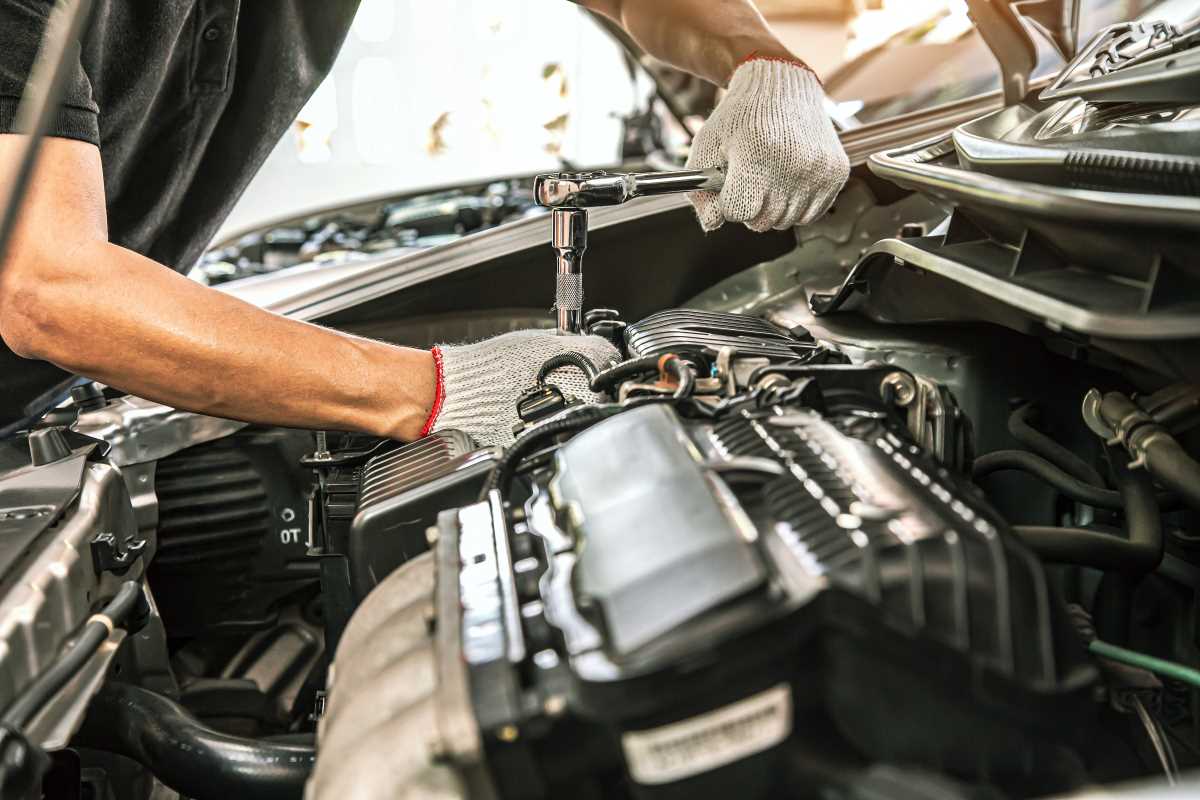Dealing with car problems can make even the calmest person feel stressed. The cost of repairs, the inconvenience, and the fear of being ripped off are real. Having a reliable mechanic changes everything. A skilled and honest professional will not only repair your car properly but also give you peace of mind. Finding someone you can trust isn’t always straightforward, but it’s worth the effort. By following the right steps, you can identify a mechanic who takes pride in their work and treats you fairly. We're going to walk you through practical tips to locate a trustworthy mechanic and avoid common pitfalls along the way.
Start With Recommendations You Can Trust
Ask the people in your life who rely on their cars the most. Friends, family, coworkers, and neighbors are all great sources for referrals. People often have strong opinions about mechanics they've worked with, so you're likely to get honest feedback. Focus on recommendations from people who’ve had the same type of repair your car needs or who drive a similar vehicle to yours.
Once you gather a few names, look up their shops online. Read customer reviews on platforms like Google or Yelp and check out their social media pages, if available. Look for consistent ratings and mentions of honesty, fair pricing, and quality repairs. Be cautious of places with lots of glowing reviews but no details about the work performed.
Look for Certifications and Experience
Reliable mechanics back their skills through certifications. One of the most respected credentials in the industry is from the National Institute for Automotive Service Excellence (ASE). Mechanics with ASE certification have passed tests that prove they know their stuff and are up to date with modern repair techniques.
Don’t just stop at certifications, though. Check the shop's experience with the make and model of your car. Repairs on a Honda are very different from repairs on a BMW. Ask whether the mechanic or shop specializes in your vehicle's brand or has technicians trained by your car’s manufacturer. Experience with your kind of car increases the chance of a faster and more accurate repair.
Visit the Shop Before an Emergency Strikes
Waiting until your car breaks down to find a mechanic puts you in a vulnerable position. You’ll feel pressured to rush into choosing someone, which makes it easier for an unreliable shop to take advantage of you. Instead, look for a mechanic before trouble hits.
Pay a visit to their shop with your car for something small, like an oil change or tire rotation, to see how they operate. Observe how they greet customers, handle inquiries, and keep their workspace. A clean, organized shop with friendly staff is usually a good sign. If you feel confused or brushed off during this visit, trust that gut feeling and keep looking.
Ask for Transparency on Estimates
A trustworthy mechanic provides a clear and detailed estimate before starting any work. This includes a breakdown of parts, labor costs, and taxes. Avoid shops that only throw around vague numbers or refuse to give a written quote.
There’s also value in mechanics who explain the "why" behind each repair recommendation. Think about how much better you feel when someone takes the time to help you understand an issue. A reliable mechanic will show you the worn or faulty part after they remove it and explain why it needs replacement. If they dodge your questions or rush through explanations, consider it a red flag.
Use Technology to Verify Pricing
Checking estimates against real-world averages can help you spot shady pricing. Tools like RepairPal or Kelley Blue Book provide cost ranges for specific repairs based on your location and car model. Use these tools to see if the mechanic’s estimate seems fair.
Some shops may charge slightly higher rates because they use quality parts or have specialized tools. This isn’t necessarily a bad thing as long as they’re transparent about it. However, an estimate that is significantly higher or lower than the average may indicate corner-cutting or price gouging.
Watch for Signs of a Good Mechanic
Trustworthy mechanics share certain habits that separate them from the less reliable ones. Look for these qualities during your interactions:
- Willingness to share technical details without talking down to you.
- Offering warranties on parts and labor, giving you protection against future issues.
- Sticking to the timeline they promise for repairs.
- Prioritizing safety when recommending repairs instead of aggressively upselling unnecessary services.
A good mechanic also communicates clearly throughout the repair process. You won’t have to chase them for updates, and they’ll always inform you before making additional repairs beyond what was agreed upon.
Beware of Red Flags
Some mechanics might seem trustworthy at first glance but should still be approached with caution. Shops that refuse to provide written estimates or pressure you into immediate repairs should raise suspicion. Another red flag is a shop that frequently changes its pricing or claims to find unexpected issues after the repair has started.
Keep an eye out for overly frequent upselling as well. It’s normal for a mechanic to recommend fixing problems they notice during a repair, but constant suggestions for costly add-ons can be a bad sign.
Consider Independent Shops Over Dealerships
Dealership service centers often have higher rates for repairs, thanks to overhead costs and brand-name recognition. Unless your car is still under warranty, independent mechanics may provide better value. They are also more likely to build long-term relationships with customers, often placing greater emphasis on trust and consistency.
Reach out to several independent shops and get a general feel for their expertise and customer service. While you may not find marble-tiled waiting rooms, you might discover they offer better prices and a more personalized experience.
Make Use of Warranty and Insurance Programs
If your car is still relatively new or repaired recently, take advantage of any warranties on parts or labor. Legitimate mechanics will always honor warranties without argument. You can also check if your insurance company offers preferred repair shops in your area that have a reputation for trustworthiness. Insurance-backed guarantees add an extra layer of protection against shoddy repairs.
For extended or third-party warranties, confirm that the mechanic is authorized to perform work covered under those agreements before proceeding.
Build a Relationship With Your Chosen Mechanic
Once you find a mechanic you trust, sticking with them for future repairs builds a positive relationship. Over time, they’ll become familiar with your car’s history, making diagnostics faster and often saving you time and money.
Communicate openly about your car’s needs and maintenance plan. Trustworthy mechanics appreciate loyal customers and are more likely to prioritize your vehicle in emergencies or go the extra mile to resolve issues.
 (Image via
(Image via





